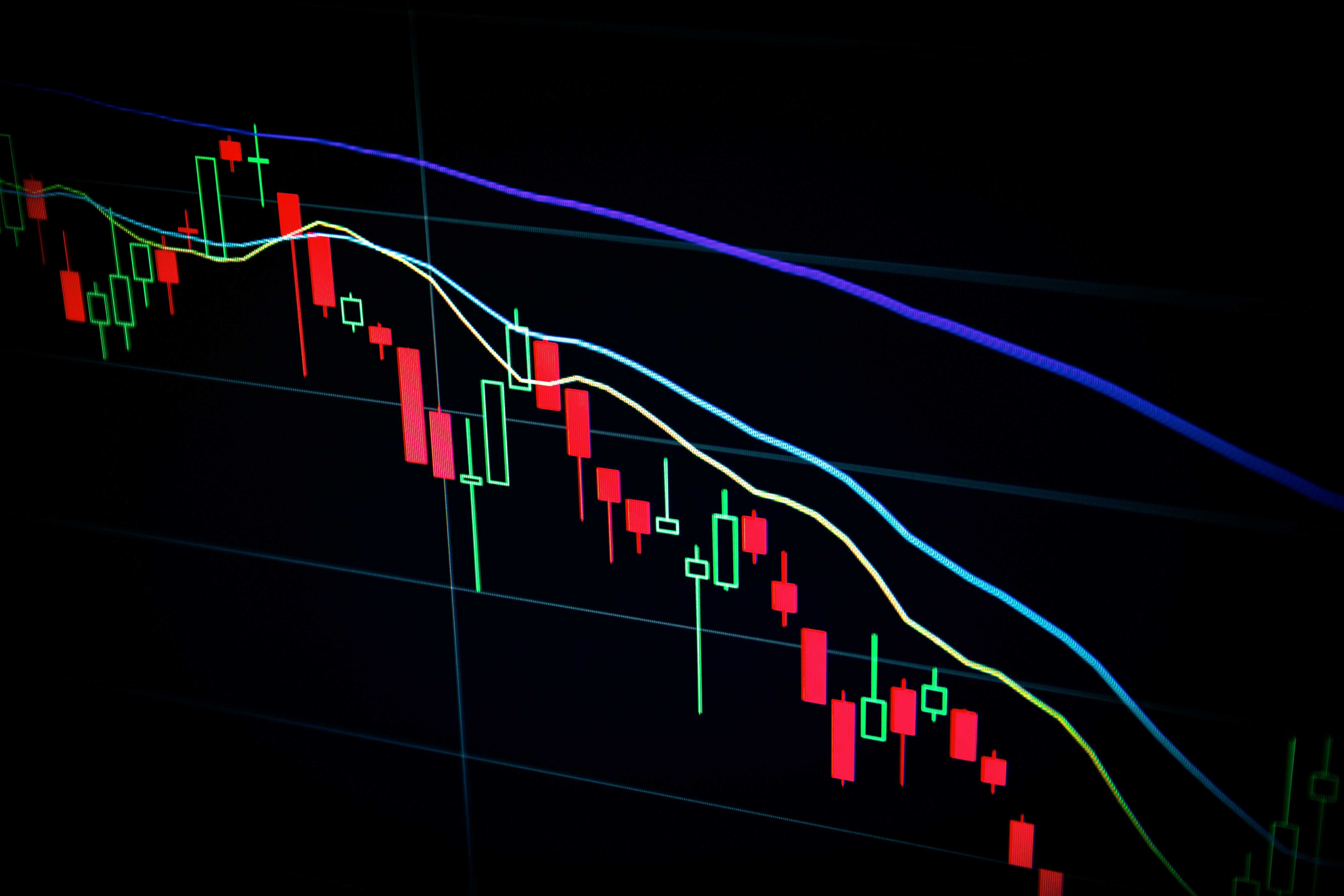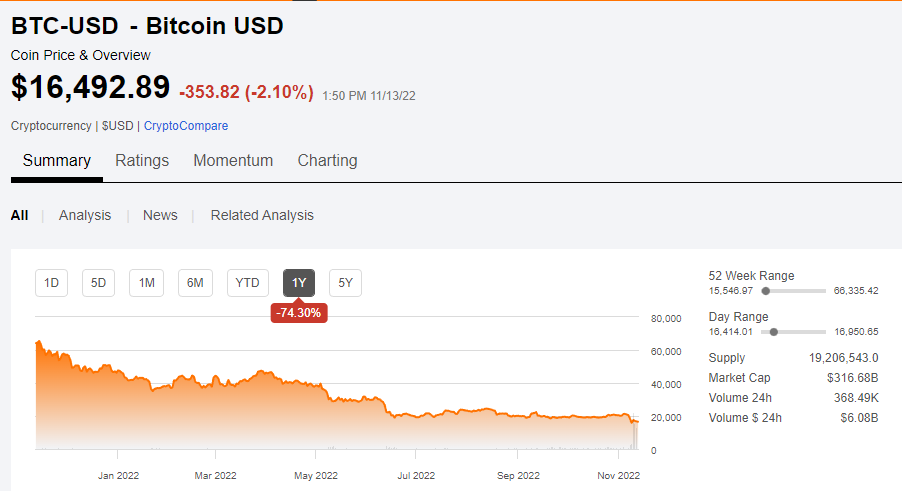DISCLOSURE: THIS POST MAY CONTAIN AFFILIATE LINKS, MEANING I GET A COMMISSION IF YOU DECIDE TO MAKE A PURCHASE THROUGH MY LINKS, AT NO COST TO YOU. PLEASE READ MY DISCLOSURE FOR MORE INFO.
Anyone interested in investing in cryptocurrency?? There’s been a lot of hype in recent years about cryptocurrency, and there have been a lot of people and organizations throwing money into crypto. Some investors have ridden the wave and have been fortunate enough to make some serious money with it during upturns. I certainly hope they’ve cashed out and are sitting on their gains! Some, however, remain invested in the digital currency with a hopeful outlook for the future. Do they really know what to expect?

The recent headlines surrounding the bankruptcy of FTX, the crypto exchange that promotes crypto liquidity and transactions, further generates a barrage of questions. In my view, crypto is not an investment; it’s a gamble. In “normal” trading periods, the digital currency has exhibited significant volatility, and investors who have thrown money into crypto have oftentimes found themselves on the trading equivalent of a roller coaster ride. Things look promising when crypto is up, but quickly turn into gut-wrenching anxiety when crypto is down! The ride down is steep…
Digital Currency is Just Another Currency
It’s all driven by supply and demand factors, just like any other currency or commodity. Along the same line, you can also make money by putting money into gold, silver, the U.S. dollar, or the Euro. In all such cases, supply and demand factors (along with market hype/speculation) drive values up and down at rapid pace, oftentimes with no clear warning of the direction it’s going to go. In the case of crypto, its up & down movements are taking place at hyperspeed.
Crypto is a tradeable asset, but again its value is purely driven by supply & demand factors. It’s extremely challenging, even for renowned economists, to effectively forecast economic conditions related to supply and demand. That’s exactly why we regularly have booms and recessions. The same supply and demand principles apply to cryptocurrencies, with gains in value when demand rises higher than supply.
In other words, the value of any crypto is purely speculative. It isn’t based on any future projection of cash flows or earnings, since crypto doesn’t produce anything. It’s not an operating entity, and it’s not a piece of real estate that you can lease out for income. It’s typically used in practice as a medium of exchange, but that’s entirely dependent on who will and will not accept it. Some folks also consider it a store of value, similar to gold or silver, but the extremely high volatility of crypto eliminates any such use. You rapidly lose or gain value on any given day!
So if you put money into crypto, what are you truly putting money into? Only the hope that demand will continue to rise and increase its value. That may or may not happen, but that sort of practice is truly just a gamble that comes with significant amounts of risk. Instead, stay focused on my core investing principles to minimize risk and maximize return.
FTX Files for Bankruptcy
FTX is a leading cryptocurrency exchange that enables customers to trade digital currencies for other digital currencies or traditional money, and vice versa. It very recently filed for bankruptcy. Based on hearsay and other factors, the exchange suffered mass withdrawals, and it’s FTT crypto plummeted 80% in price, forcing the CEO to resign and the company to file for bankruptcy. It all happened over the course of a couple of days, and the price of Bitcoin and Ether, some of the most valuable tokens, were related casualties that have fluctuated widely, at one point dropping more than 20%. A large number of people and organizations who were invested in FTX have now suffered significant losses as a result.

Because of speculative supply/demand factors driving the value of crypto, and with no substance to it, it is highly risky! A lot of the uptick in its perceived value is driven by speculation and optimism about the future of digital currency. Yet, there remains a huge cloud of uncertainty surrounding the future prospects of cryptocurrency. It’s likely here to stay….but in what form?? The end-result in terms of the dominate digital currency and blockchain remains to be seen, creating a lot of uncertainty. In addition, there are a number of shortcomings with 6 of the top drawbacks listed below:
Future Outlook for Crypto: Uncertainty
Major Shortcomings of Crypto
Crypto Competition – There are thousands of different cryptocurrencies in existence, with new projects and tokens launching every day. The barrier to entry is relatively low for new competitors, but creating a viable cryptocurrency also relies on building a network of users of that cryptocurrency.
Extreme Volatility – As a whole, crypto is also extremely volatile! According to the U.S. Dollar index (DXY), which tracks the U.S. dollar against a basket of important world currencies, the U.S. dollar has risen 11.95% in the past 1-year period. It has floated between $94.63 and $114.78 during that time, resulting in a standard deviation of 10.7. In contrast, Bitcoin as one of the leading cryptocurrencies, has plummeted -73.7% in the past 1-year period, with a range of values between $15,547 and $66,335. This translates to a standard deviation of 25,394, indicating significant volatility!

Cost of Production – New cryptocurrency tokens are produced through a process called mining. Participants invest in expensive equipment and electricity in order to mine cryptocurrency, also producing adverse external costs to the environment. As mining costs increase, it necessitates an increase in value of the cryptocurrency, which is entirely dependent on demand. Miners won’t mine if the value of the currency they’re mining isn’t high enough to offset their costs.
No Security – Most investors want to allocate capital into safe and secure investments. At the very least, you want your invested principal to remain intact. However, the future as a whole is uncertain with crypto, as there are always major risks associated with volatility, cyber attacks in digital transactions, and others.
Prone to Illegal Activities– crypto is not currently regulated by the government, and it’s even illegal in some countries. As such, there is no trail related to data transactions, since users at both ends of transactions remain anonymous. The anonymity is alluring to criminal and terrorist organizations. Many instances of transpired where hackers have demanded crypto from users. Even after meeting their demands, most of the users found their data lost in the attacks.
Regulation is on the Horizon – Instances like the FTX bankruptcy, along with the extremely volatile nature of crypto, have added fuel to the fire of calls for regulation. Currently, crypto is not backed by any central authority, and it is not regulated by any governmental authority. However, regulation is likely imminent, and that creates a wealth of uncertainty in a number of respects, including a negative effect on its demand. If a governing body changes the rules to disfavor cryptocurrency investment or use, it could send the price of cryptocurrencies lower.
Conclusion
In my view, putting money into crypto is more akin to gambling than investing, and the differences between the two are significant. Gambling is purely based on chance, whereas investing affords the ability to minimize risk by way of thorough knowledge and analysis. In that regard, it’s more preferrable to make sound decisions based on substantive research rather than purely speculating.
As such, searching out crypto opportunities or throwing money into them is far from an ideal “investment” opportunity. According to economists, the crypto market is likely at its peak anyway. But the decision is all yours, of course.
Crypto is full of risks and, while it is possible to make money with them, there are far better, less risky ways to do so. Instead, I recommend following logical investment principles and using sound research & analysis to identify solid investment opportunities that actually produce earnings, cash flows, or income. Stay focused on my core investing principles to minimize risk and maximize return!

Disclosure/Disclaimer
The information provided on this site is based on my own personal experience, research, and analysis, and it is not to be construed as professional advice. Please conduct your own research before making any investment decisions. I am not a professional financial advisor, stockbroker, or planner, nor am I a CPA or a CFP. The contents of this site and the resources provided are for informational and entertainment purposes only and do not constitute financial, accounting, or legal advice. The author is not liable for any losses or damages related to actions or failure to act related to the content on this website.

